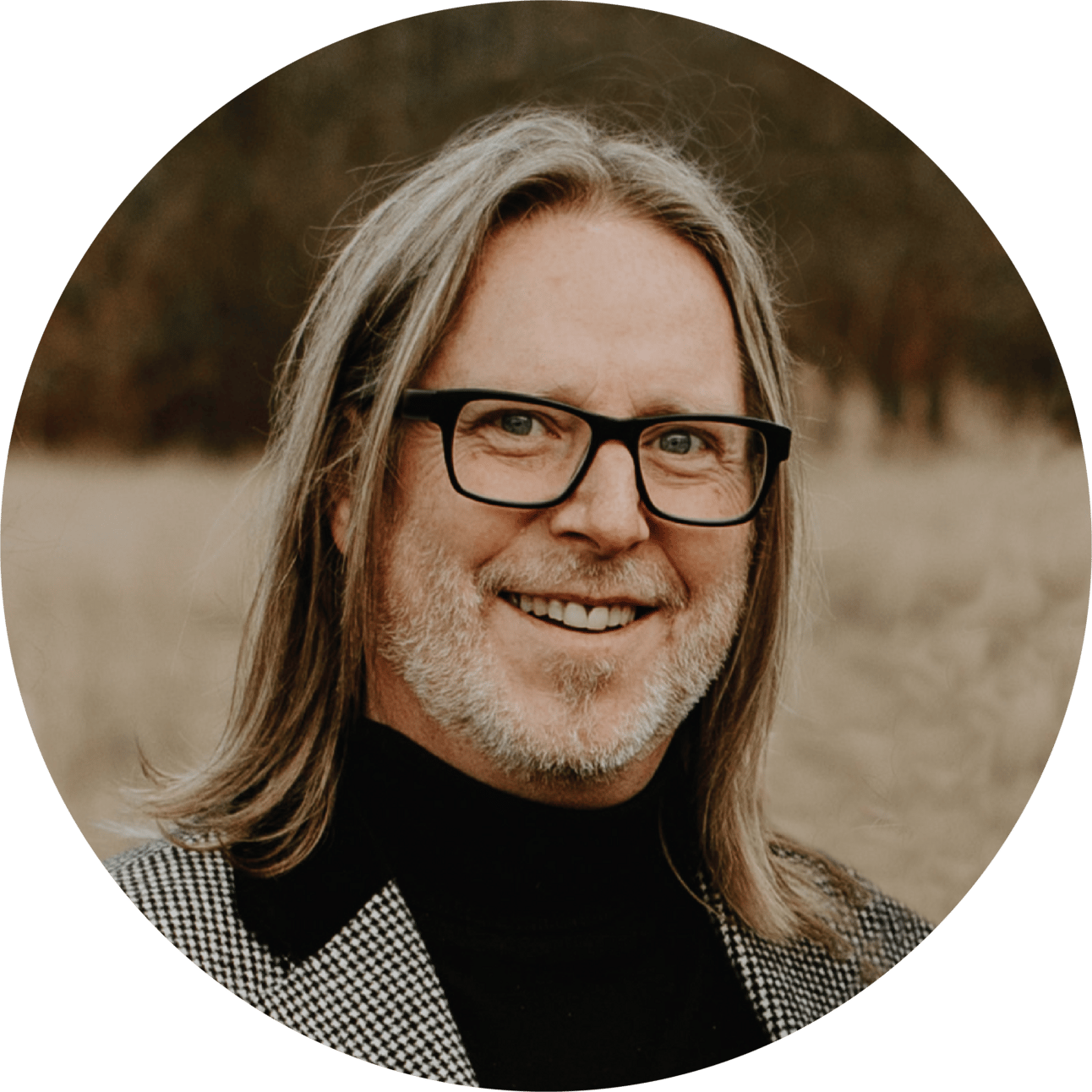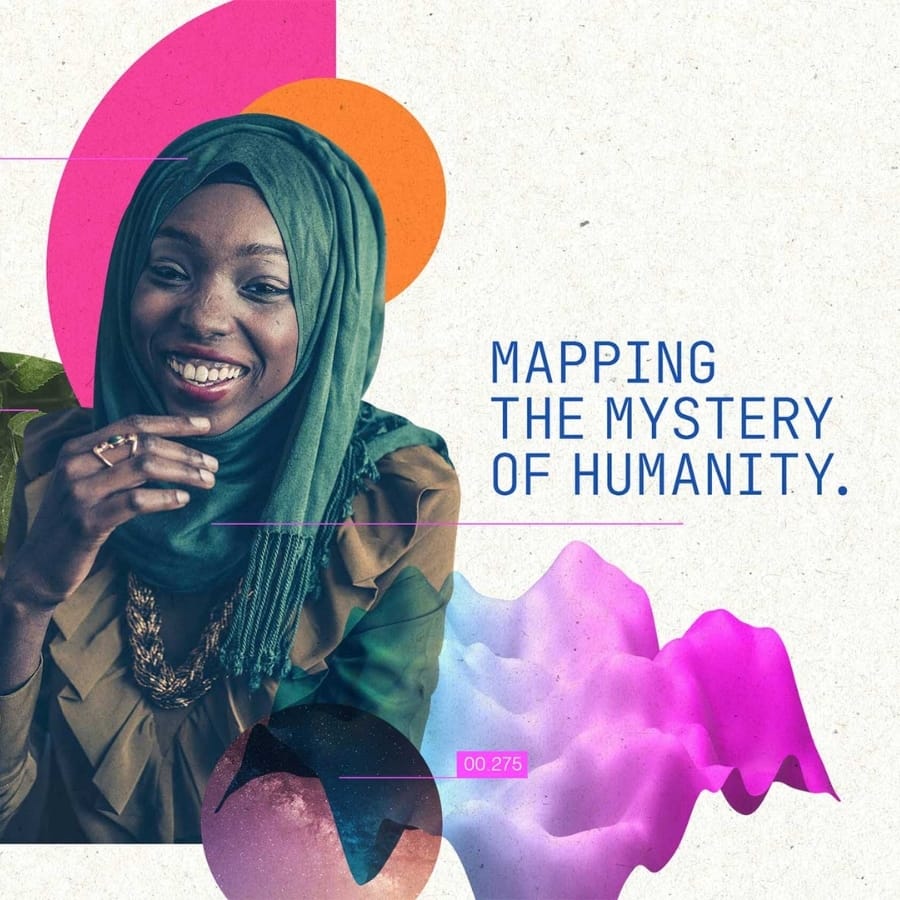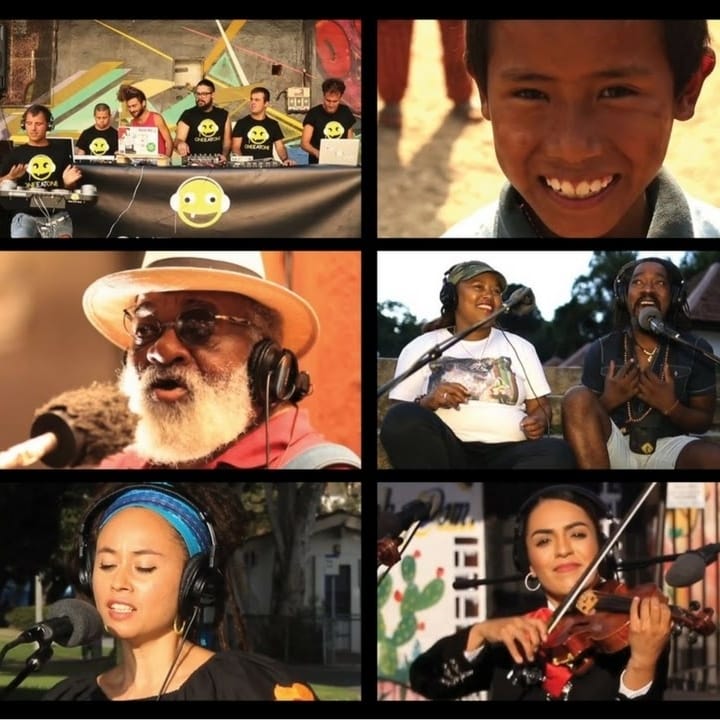A couple of weekends ago, I found myself sitting on the couch, coffee in hand, while something extraordinary unfolded around me—ordinary, but extraordinary.
The house was alive. All four of our grandkids were there, including the newest additions—our infant twins, with their wide eyes, and those irresistible newborn sounds that melt you on the spot. Our older grandkids were chasing each other through the kitchen like joyful little hurricanes.
Meanwhile, our four adult kids and their significant others had formed their usual kitchen huddle—nibbling at brunch before we were done making it, telling stories that made them laugh until someone snorted, and slowly, almost accidentally, creating that sacred space where people let themselves be real.
And here’s the wild part: this isn’t rare. They do this almost every weekend.
Not out of obligation, but because they want to. They keep showing up, making space with each other (and us). No agenda. Just connection.
And yes—it’s messy.
We don’t always agree.
There are unresolved tensions, differing opinions, old wounds, and new misunderstandings.
But what’s stronger than the disagreement is the choice to stay in it.
To keep showing up, even when it’s hard.
To laugh, even when there are things we haven’t figured out.
To disagree—and still feel deeply loved.
Somewhere in the middle of the laughter and poached eggs waiting to be plated, I caught Teresa’s eye. This beautiful chaos? It started with just the two of us. But now? It’s our own little ecosystem of love, resilience, and belonging—not perfect, but real.
I sat there, deeply aware of how challenging, stretching, and wonderfully imperfect life can be—and at the same time how profoundly beautiful it can be.
To be part of a community—where we are known, loved, served, and celebrated even in the mess—that’s it.
That’s flourishing.
It turns out, the research agrees.
What It Means to Flourish (and Why It’s Not Just About Feeling Good)
For the past decade, LifeApp has been focused on a singular mission: to empower more people to flourish—mentally, socially, physically, and spiritually—by learning how to live love well in every part of life.
And now, thanks to the Global Flourishing Study—a five-year, 200,000-person, 22-country collaboration between Harvard, Baylor, Gallup, and a small army of researchers—we have hard data to back up what we’ve felt in our bones for years:
The most important predictor of a good life isn’t wealth, fame, or even happiness.
It’s the quality of our relationships—with ourselves, with others, with our environment, and even with our resources—that shapes nearly every dimension of well-being.
The truth is, flourishing isn’t just one thing—it’s a combination of six key areas that shape how we live and feel.
Happiness & Life Satisfaction
Shaped by belonging, connection, and how deeply we feel seen and supported.
When relationships are strong, life satisfaction rises.Mental & Physical Health
Rooted in how we relate to ourselves—our thoughts, our body, and our well-being.
Flourishing begins with self-respect, self-care, and self-compassion.Meaning & Purpose
Found when we give of ourselves for something greater—serving, creating, or caring for others. Purpose is almost always relational.Character & Virtue
Formed in how we treat people, especially when it's hard. Love lived out looks like integrity, empathy, humility, and courage.Close Social Relationships
Measured through the quality of our friendships, family bonds, trust, and emotional support. These relationships are not just part of flourishing—they are the heartbeat of it.Financial & Material Stability
Not just about how much we have, but how we relate to what we have.
Flourishing includes generosity, security, and stewardship that reflect our values.
The takeaway? Flourishing is relational at its core.
What the Global Data Reveals—Especially in North America
The Global Flourishing Study doesn’t just confirm what many of us intuitively feel—it gives language and evidence to something we’ve been saying at LifeApp for years:
It’s the quality of our relationships—how we care for one another, how we show up, how we build trust—that most powerfully predicts whether we thrive.
In other words, love—not as sentiment, but as a consistent posture of care for the well-being and security of others—is what makes flourishing possible.
Here’s some of what the data makes clear:
1. More money doesn’t create more meaning
In high-income countries such as the U.S., Canada, and Sweden, people report greater financial stability, but consistently lower scores in purpose, connection, and overall life satisfaction. Meanwhile, in countries like Indonesia, Mexico, and the Philippines, people flourish in ways that go beyond material wealth. They report stronger ties to family, deeper community, and a greater sense of meaning—even with less money.
The takeaway? Money matters. It provides safety, options, and dignity. But flourishing doesn’t follow your bank balance—it follows connection, contribution, and a sense of belonging. You can have wealth and meaning. But without healthy relationships and a clear sense of purpose, even abundance can feel hollow.
2. Young adults are feeling the weight
Across many countries, younger generations are reporting rising levels of anxiety, disconnection, and uncertainty about the future. Economic instability, social fragmentation, and the pressure to perform—often under constant comparison—have left many struggling to find a clear sense of direction or belonging.
This isn’t about a lack of effort or resilience. It’s about a lack of meaningful connection in a world that rewards productivity over presence and visibility over authenticity.
The Global Flourishing Study echoes what many young adults already feel: flourishing isn’t found in achievement alone—it’s found in connection, purpose, and being deeply known. And for many, those are harder to come by than ever.
3. Relationships are the real success factor
Across every culture studied, people who reported having stable, supportive relationships—whether through marriage, community, work, or consistent gatherings—also reported higher levels of flourishing. The common thread isn’t structure—it’s safe connection. Environments where people feel seen, valued, and grounded in something beyond themselves tend to foster wholeness, resilience, and hope.
Researchers described this through four relational pillars of thriving:
Belonging – You know you matter and aren’t alone.
Bonding – You feel emotionally connected to others in meaningful ways.
Behaving – Your choices reflect values you share with the people and communities around you.
Believing – You live with a clear sense of purpose, meaning, and direction.
Or to put it simply: When love is lived consistently—in how we show up for others and how we care for ourselves—people flourish.
4. Your past doesn’t get the final word
In places like the U.S. and Argentina, individuals who experienced hardship in childhood—poverty, loss, trauma—often reported more meaning in adulthood. Not because pain is redemptive on its own, but because healing is possible when people are supported in finding purpose, rebuilding trust, and forming life-giving relationships.
Flourishing isn’t the absence of struggle. It’s what happens when love meets pain with courage, compassion, and connection
The North Star: It All Comes Back to Love
Not the sentimental kind. And not the romantic cliché we toss around on greeting cards.
We’re talking about love as a way of being. A grounded, relational intelligence that asks us to care about the well-being and security of others as much as we care for our own.
This kind of love isn’t soft—it’s strong. It builds trust. It speaks truth with kindness. It sees value in people, even when they’re struggling. It helps us move from self-protection to shared purpose.
And here’s what the Global Flourishing Study confirms:
Wherever people are flourishing—mentally, socially, physically, spiritually—love is quietly at the center.
Not just as a feeling, but as a practice. A pattern. A presence. A way to lead. A way to grow. A way to heal.
One that shapes how we raise our kids, run our companies, handle conflict, steward resources, and even relate to ourselves.
To flourish is to live love fully, consistently, intentionally, and in every corner of our lives.
Three Small Steps Toward a Life That Flourishes
Initiate a “no-agenda connection”
Invite someone—family, friend, or colleague—into a short conversation with no productivity goal. Just presence. Ask how they’re really doing. Listen without fixing. Whether it's a coffee, a walk, or a voice note, these moments build the kind of trust that strengthens both of you.Because relationships aren’t built in big breakthroughs—they’re built in ordinary, intentional moments.
Audit your inner life with love
Take five quiet minutes to check in with yourself: Where am I flourishing? Where do I feel disconnected? What part of me needs care or clarity this week? Then extend compassion to that part of you—not shame. Love begins with how we treat ourselves when we’re struggling.Remember: to love is to care for your own well-being and security, too.
Shift one decision from performance to purpose
Pick something on your calendar this week—an email, a meeting, a family moment—and ask yourself: What would love do here? Not to be soft, but to be strategic. Love might pause before replying. It might ask a better question. It might create space for someone else to shine.When we move from proving to contributing, we not only flourish—we help others do the same.
Final Thoughts
We don’t flourish because everything goes right.
We flourish because life is rooted in meaning, anchored in connection, and held together by the kind of love that keeps showing up—quietly, consistently, in the middle of brunch and unwashed dishes.
And sometimes, that truth lands while you're sitting on the couch, coffee in hand, watching the people you love create something sacred just by being together.
That’s when you realize: this isn’t just a good life.
This is a flourishing one.
Until next week,
Jonathan Penner | Founder & Exec Dir. of LifeApp


Resources To Dig Deeper

Study
The Global Flourishing Study
This study unites scholars and institutions worldwide to explore what it means to flourish. This interdisciplinary initiative examines well-being across cultures and life experiences, providing insights into the factors that drive human flourishing. Through collaboration, the study aims to inform policies and practices that promote global well-being.

Video
What Makes a Good Life?
What keeps us happy and healthy as we go through life? If you think it's fame and money, you're not alone – but, according to psychiatrist Robert Waldinger, you're mistaken. As the director of 75-year-old study on adult development, Waldinger has unprecedented access to data on true happiness and satisfaction. In this talk, he shares three important lessons learned from the study as well as some practical, old-as-the-hills wisdom on how to build a fulfilling, long life.
-Robert Waldinger, TED

Music
Lean On Me
carries a powerful message of mutual support, friendship, and the importance of community during difficult times. It emphasizes that everyone needs help at some point and that offering and accepting support is crucial for both the giver and the receiver. The song emphasizes the notion that true love and connection are found in being there for one another, especially when someone is at their lowest.
-Playing For Change
Learn More About

/

